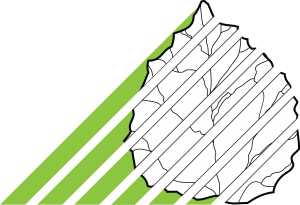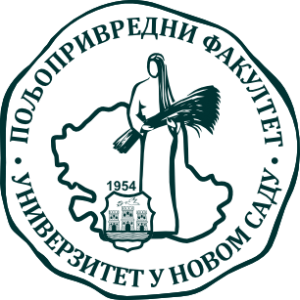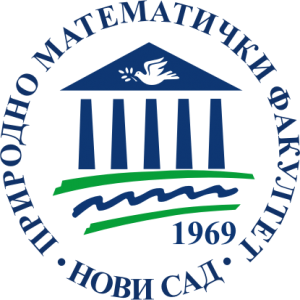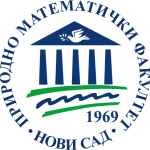
University of Novi Sad, Institute of Lowland Forestry and Environment
The University of Novi Sad, Institute of Lowland Forestry and Environment (ILFE) is the leading forest scientific institution in Serbia. The scope of its research activities covers both fundamental and applied researches in the fields of genetics and breeding of forest tree species, forest ecology, forest management, forest policy and forest protection. Majority of researches employed at ILFE (21/28) has Ph.D. degree.
Besides research work, ILFE researchers teach courses for Bachelor’s, Master’s and Ph.D. degrees at the University of Novi Sad, Faculty of Agriculture (Department of Horticulture and Landscape Architecture) and Faculty of Sciences (Department of Biology), as well as at the University of East Sarajevo, Faculty of Agriculture (Department of Forestry).
ILFE has a long and fruitful collaboration with companies dealing with forestry (Vojvodinasume, Srbijasume, Sume Republike Srpske (Bosnia and Herzegovina)), water management (Vode Vojvodine), energy production (Thermal Power Plant Kolubara), as well as national parks (Fruska Gora, Tara, Kopaonik, Đerdap), municipalities (Novi Sad, Kikinda, Subotica, Becej, etc.) and private forest owners.
ILFE researchers are members of the Executive Committee of International Poplar Commission (UN-FAO-IPC), International Co-operative Programme on Assessment and Monitoring of Air Pollution Effects on Forests (ICP Forests), Forest Stewardship Council (FSC), American Phytopathological Society (APS) and International Society for Plant Pathology (ISPP). Within EUFGIS project ILFE is the national focal point for Serbia.
ILFE hosts living archives of poplar, willow and black locust, consisting of hundreds of clones. ILFE is the owner of numerous registered poplar and willow clones, some of which are certified at the international level, as well as rights holder of several utility models and patents applied in forestry.
ILFE has participate at several national and international (i.e. Interreg Danube, IPA, COST, EFI) projects.

University of Novi Sad, Faculty of Agriculture
The Faculty of Agriculture in Novi Sad is an institution of higher education and scientific research whose mission is to stimulate high-quality educational processes, development of scientific disciplines and dissemination of knowledge gained in economy and society. Since its establishment in 1954, the Faculty of Agriculture has been dedicated to the accomplishment of its mission, based on successful results of its scientific research activities and their application in practice. The Faculty of Agriculture carries out its mission in three interrelated groups of activity: higher education, scientific research, and knowledge application on the field of economy.
The Faculty of Agriculture has eight departments, as well as five experimental stations which primary purpose is to provide practical training for students and research area for experiments. The Faculty has 34 laboratories. Doctoral studies at the Faculty are provided throughout three courses: Veterinary medicine, Agricultural economics and Agronomy. Module Forestry exists within course Agronomy and consists of 17 subjects, covering numerous fields of forest science, such as: forest health, genetics and breeding of forest tree species, biotechnology in forestry, forest ecology, silviculture, etc.
The Faculty of Agriculture has been participating in different projects, such as FP7, HORIZON, IPA, TEMPUS, ERASMUS, etc. Currently, the faculty participates at four H2020 projects, five Erasmus projects, four Interreg projects, as well as number of CEEPUS, COST and bilateral projects.

University of Novi Sad, Faculty of Sciences
The University of Novi Sad, Faculty of Sciences is one of the leading higher education institutions and the country’s strong base of teaching and research in fundamental sciences, mathematics and computer science, founded in 1969. The Faculty is comprised of five departments which conduct teaching and research in a wide range of fields: chemistry, biochemistry, biology, ecology, environmental protection, physics, astronomy, computer science, mathematics, geography, geoscience, and tourism. The Faculty’s mission is to create state-of-the-art knowledge through education and research, to safeguard research integrity, to facilitate career development of its staff, and to attract external funding to achieve full integration into global as well as the European Research and Higher Education Area. The competence of researchers from The Faculty of Sciences has also been proven by the fact that among the thirty most highly cited researchers from the territory of Vojvodina, up to 20 professors and their associates are from the Faculty of Sciences.
Scientific and research activities at the Faculty of Sciences have been carried out within the projects which have involved more than 250 PhD holders and about 100 younger researchers in the fields of science, mathematics and social sciences: chemistry, biology, physics, mathematics and informatics, environmental protection, geography and tourism.
The Faculty of Sciences has participated in about 100 national projects (the Ministry of Education, Science and Technological Development of the Republic of Serbia in the group of fundamental research, technological development, integrated and interdisciplinary research, as well as in long-term and short-term projects of special interest for the Provincial Secretariat for Higher Education and Scientific Research of the AP Vojvodina).
In addition to the nationally funded projects, international projects and actions are highly important. At the moment, there are 40 ongoing international projects and actions within the following programmes: HORIZON 2020, Interreg (IPA CBC and Danube Transnational), COST, bilateral and multilateral collaborations, Erasmus, etc.


